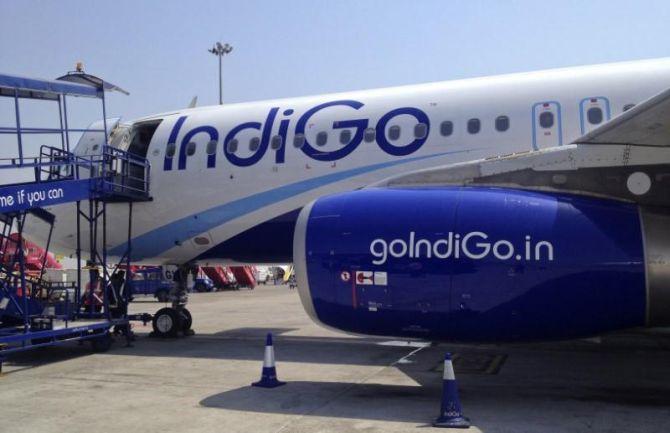 | « Back to article | Print this article |
With 262 planes, IndiGo operated over 1,500 daily flights prior to March 24 but is now operating around 350 scheduled flights a day, which is putting a pressure on its finances.

The country’s largest airline, IndiGo, is seeing signs of growth in seat occupancy after resuming domestic operations recently.
In an interaction with Business Standard, IndiGo chief executive officer Ronojoy Dutta also said the airline had plans to raise extra cash from sale and leaseback of 13 aircraft and spare engines.
The booking trend was encouraging, with growth in load factors and unit revenue, Dutta said. “Future bookings are coming along nicely,” he added.
Domestic air travel resumed on May 25 after two months of suspension, while scheduled international flights still remain shut.
Over 90 per cent of bookings in the first week of operations were for one-way trips and there was limited advance sale.
The airline has even sought government nod to allow it to fly at 50 per cent capacity as the airline is confident of bookings.
At present, airlines are permitted to operate only 33 per cent of the capacity.
The Union government recently sought industry response on the feasibility of ramping up the airline capacity.
With 262 planes, IndiGo operated more than 1,500 daily flights prior to March 24 but is now operating around 350 scheduled flights a day, putting pressure on its finances.
Around 40 per cent of IndiGo’s costs are fixed in nature and the airline has to account for lease rent, day-to-day maintenance of planes and salaries despite a sharp cut in its operations.
InterGlobe Aviation, the company that operates IndiGo, reported a pre-tax loss of Rs 1,290 crore in the January-March quarter and brokerages have cut its earnings estimates because of weak growth outlook.
While revenue is under pressure, IndiGo is in talks with lessors for sale and leaseback of 13 of its 29 owned planes to mop up extra funds.
“The proposed sale and leaseback, along with phasing out of older planes, renegotiation of contracts, and non-payment of dividend, is expected to yield Rs 3,000-5,000 crore of additional liquidity for the airline,” Dutta said.
While industry sources said IndiGo had secured waiver and deferrals in lease rent payments, Dutta said the airline was meeting all its obligations.
"Our relationship with lessors is rock solid. At this point we are paying all our bills not just to lessors but also to airports and oil companies and we intend to do so in future," he said.
The airline has not given a capacity and growth guidance for FY21 due to uncertain environment but Dutta believes the airline would deploy 80-85 per cent capacity by next summer.
For now, the airline expects cargo and private charter flights to support revenue growth.
Currently, 10 aircraft are being used solely for cargo but there is no plan for converting any passenger aircraft into freighter.
IndiGo would participate in the government scheme to evacuate stranded Indians from abroad, Dutta said, adding that it was an operational nightmare to carry it out.
Although profitability from evacuation flights was low, he said the airline would operate them as a service to nation.
"We are a leading carrier in India and we can't let Air India bear all the burden," Dutta said.
Photograph: Vivek Prakash/Reuters